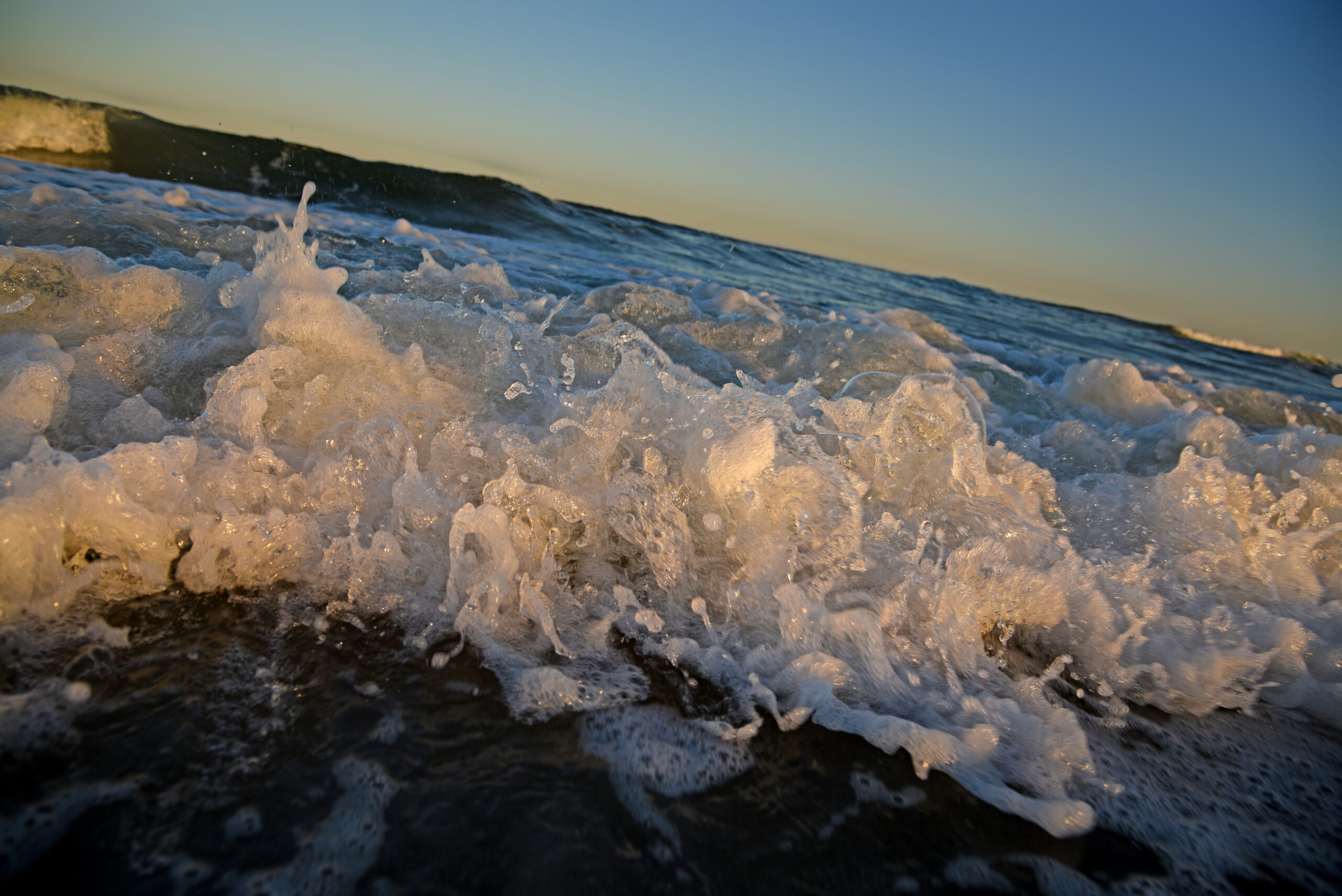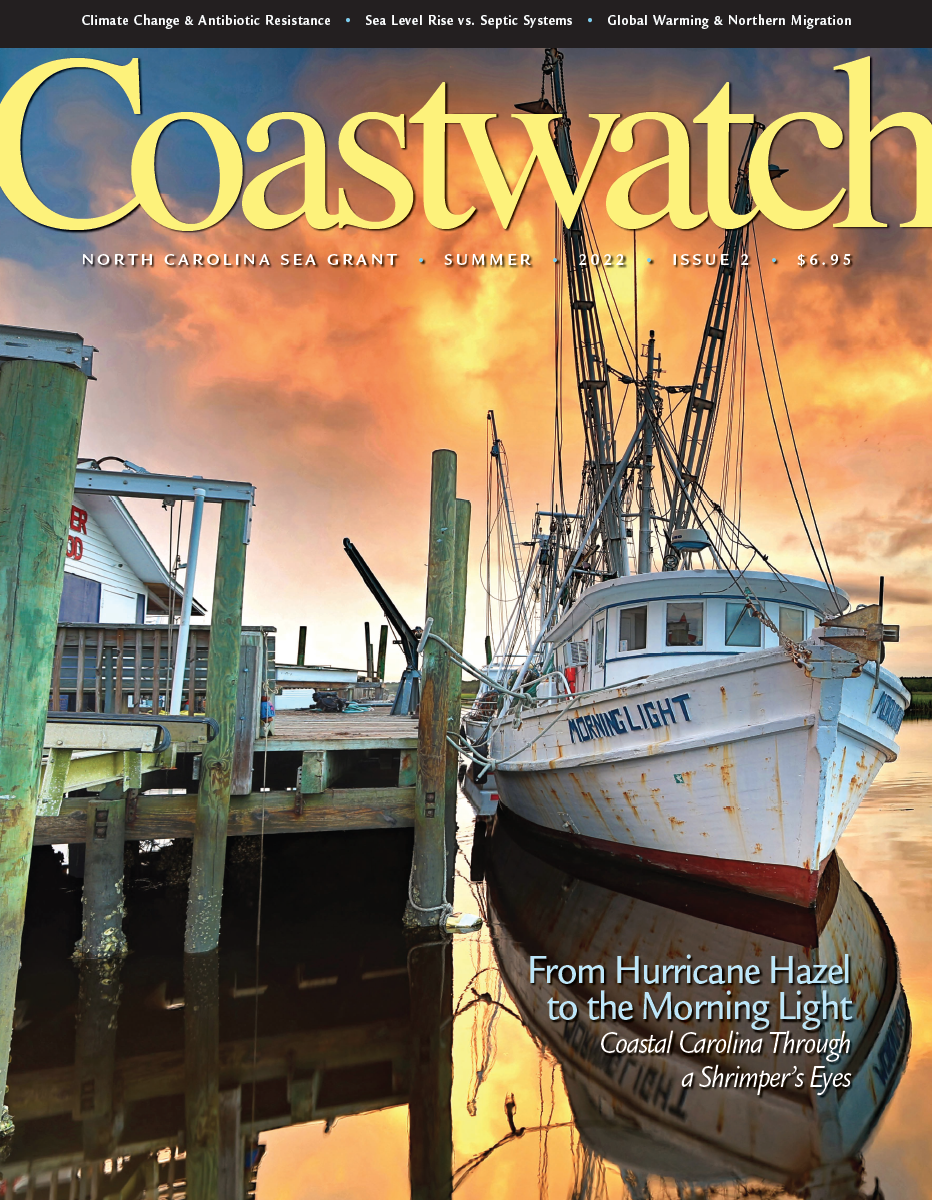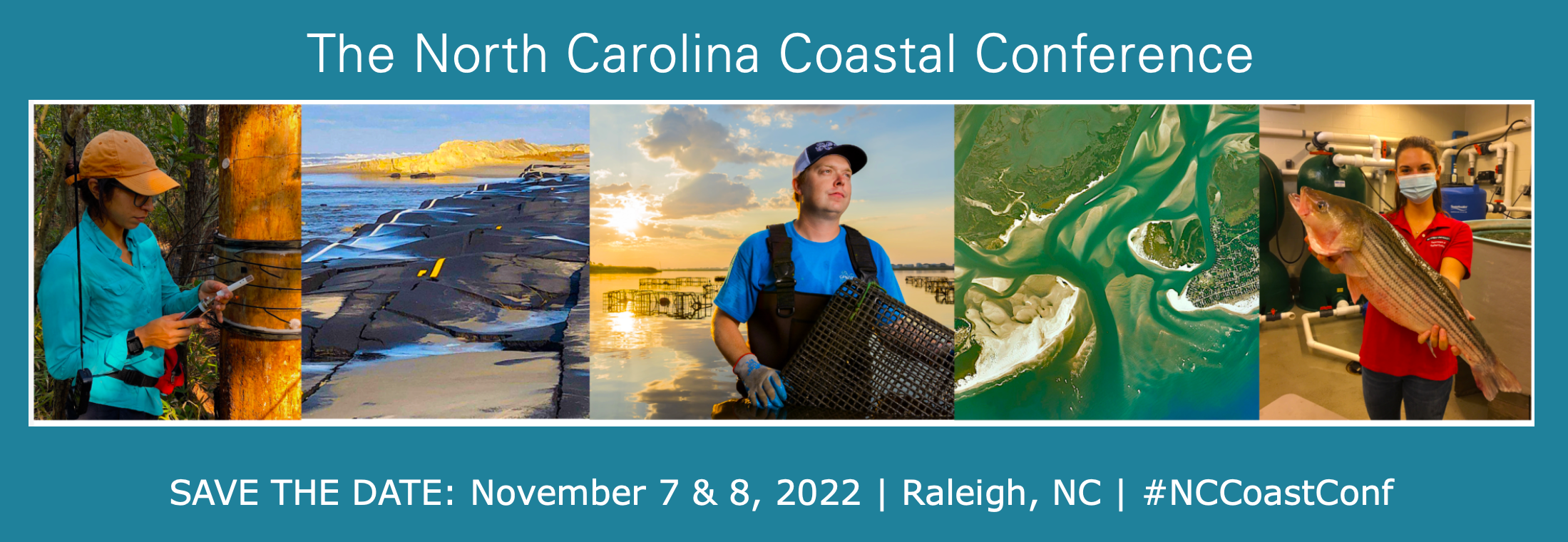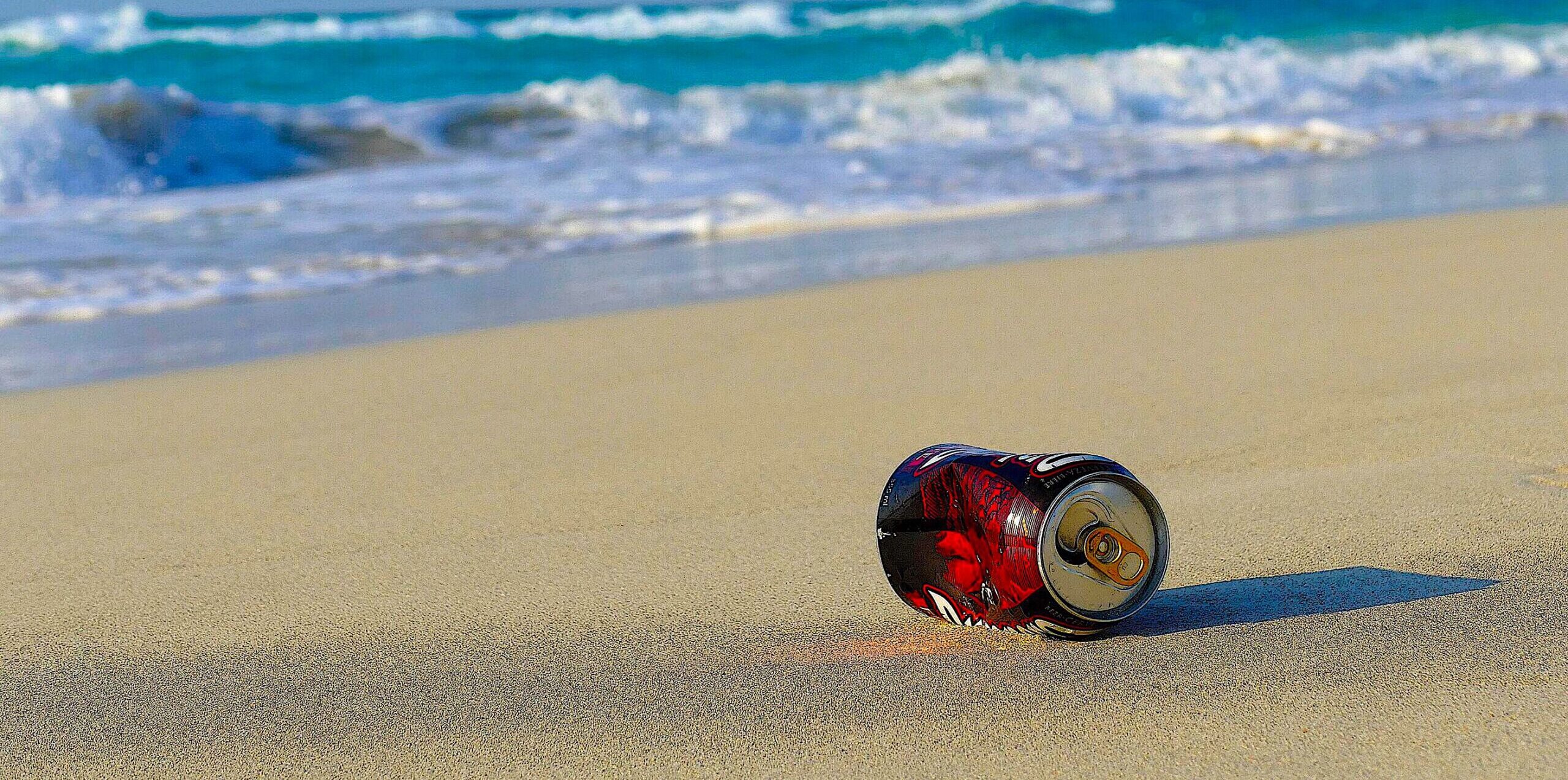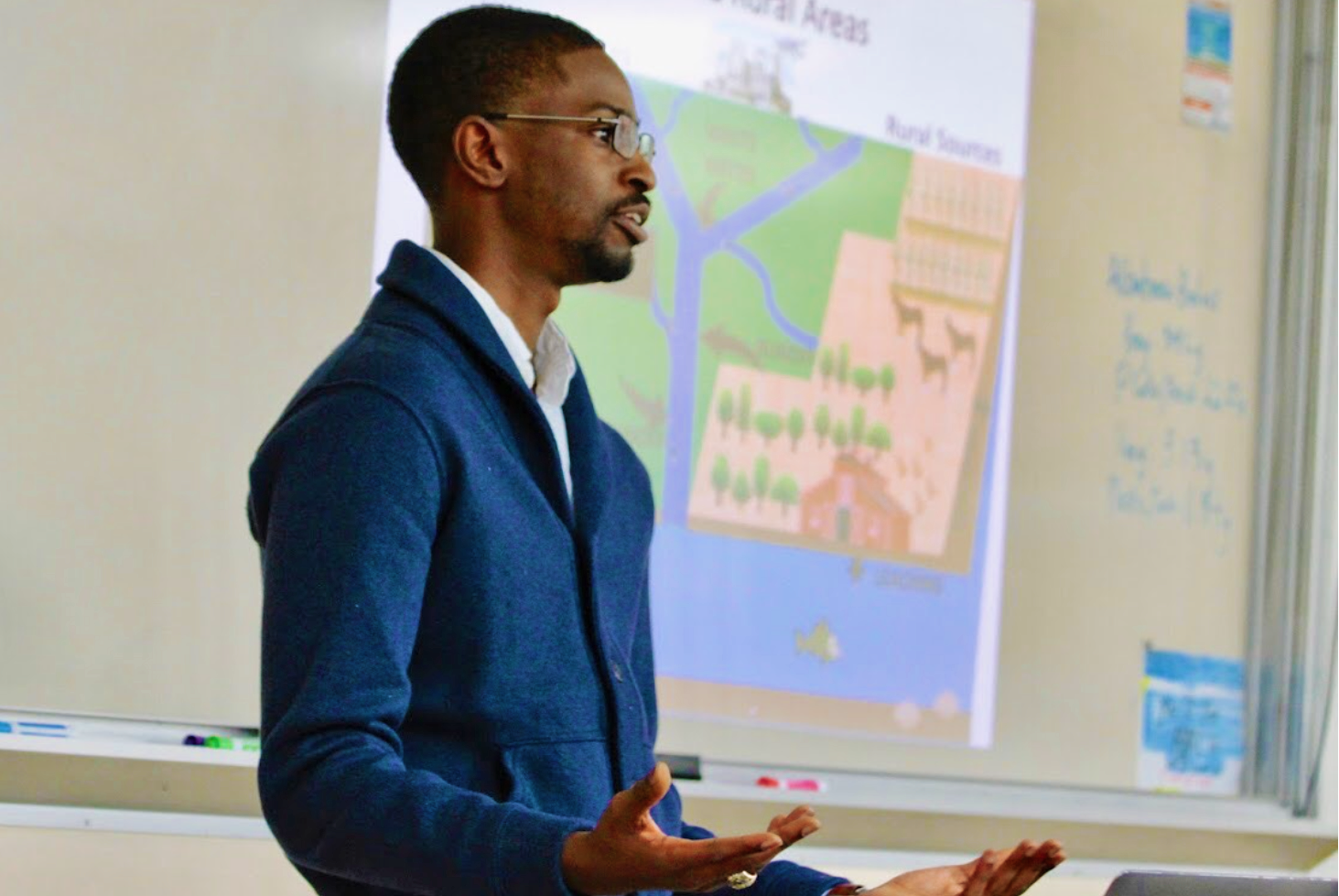North Carolina Sea Grant brings research findings and extension programming to bear on the pressing community and environmental challenges and opportunities our coast faces today and tomorrow. In close collaboration with a broad range of academic institutions, state and federal agencies, and critically important coastal community leaders, our program provides needed resources and on-the-ground capacity to understand impacts and implement solutions.

This issue of Coastwatch provides a diverse set of stories that fully captures the breadth of Sea Grant’s programs and partners. From the first page to the last page, Coastwatch highlights research, extension, and education — the pillars of the program — through stories addressing a breadth of topics relevant now and in the future. You’ll find stories in this issue about research that has identified local climate change impacts, as well as new solutions and initiatives to understand how to support human health and well-being, to improve habitats and the animals that depend on them, and to address infrastructure challenges.
You’ll also find “From Hurricane Hazel to the Morning Light: Coastal Carolina Through a Shrimper’s Eyes,” an interview with Harry Bryant, who built his own shrimp boat and made a living on open waters for 32 years. We can all learn from others’ experiences as we continue to frame and reframe our understandings of our coast — and Harry Bryant’s story shows how the changing conditions we observe over time impact the perspectives and priorities of each of us.
We also support early career scientists through research fellowships in partnership with the Albemarle-Pamlico National Estuary Partnership and with the NC Water Resources Research Institute. These opportunities provide students with leadership and research experience in addressing our state’s needs. I’m excited to learn with you as all these projects advance. We look forward to sharing these works and their impacts with you in the coming years.
The cycle of research-extension-education is continuous. As our state’s coastal challenges and opportunities evolve, so must our programs and partners to maintain effectiveness and relevance. We highlight our new research projects in this issue, providing a preview of what’s to come, what we all will be learning, and how we may all work together moving forward in these areas of investment. The breadth of research topics ranges from identifying drivers of chronic coastal flooding to understanding environmental justice during disaster recovery, from studying shellfish aquaculture and fisheries recruitment to engaging youth in research and extension — among many other areas of interest.
In the nearer term, hurricane season is upon us. Time to review and prepare with information available at go.ncsu.edu/hurricane-resources.
And we’re looking forward to hosting the NC Coastal Conference on November 7 and 8 on NC State’s campus in Raleigh. We’ve heard from our partners about how important this conference is for information sharing, strengthening collaborations across the state, and providing important opportunities for student presentations and networking. Please mark your calendars and join us.
Conference information is available at go.ncsu.edu/Coastal-Conference. You’ll find details about submitting abstracts (due September 2) for presentations and poster sessions. Later this summer, you’ll also find instructions for registration. I look forward to seeing you there.
If you have any suggestions for conference topics or sessions— or if you have any other input for North Carolina Sea Grant as we continue our strategic planning this year — please email me at snwhite3@ncsu.edu.
— Susan White, Executive Director, North Carolina Sea Grant
- Categories:
